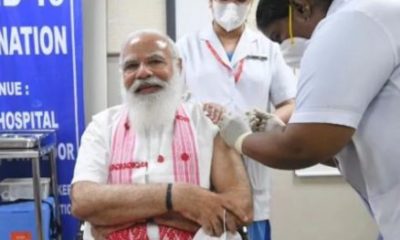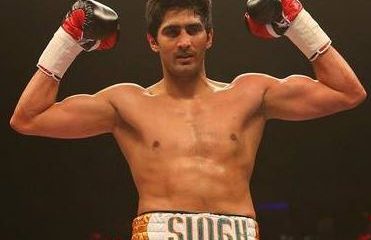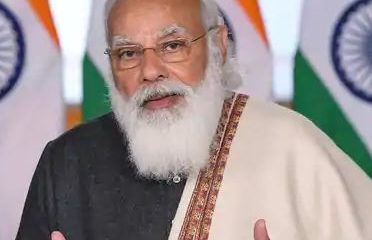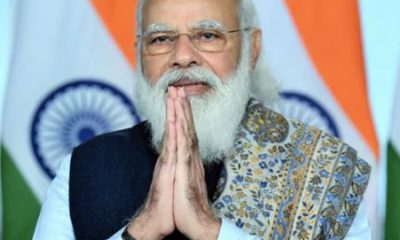Top News
India, Asean reconnect through ancient cultural linkages

New Delhi: In a major fillip to India’s Act East policy, India and the Asean countries are to delve into their ancient socio-cultural linkages through centuries and research and document the findings as part of closer partnership between the two sides, officials said on Thursday.
The move is part of the suggestions of the Asean-India Eminent Persons Group 2010, and something that Prime Minister Narendra Modi stressed on, said Anil Wadhwa, secretary (east) in the external affairs ministry here.
Addressing an international conference on Asean-India Cultural Links, Historical and Contemporary Dimensions, Wadhwa said that Modi during his visit to Myanmar last November had stressed that more should be done to make the younger generation of both sides more aware of their cultural linkages.
He said the Indian government is actively involved in efforts to protect and preserve the cultural links that show the earliest contacts.
“Political security and economic cooperation must go hand in hand with the socio-cultural connection and people-to-people linkages,” he said.
Citing examples, he said that excavations have found evidence of Indian links in the first century AD in Myanmar in the city of Beikthano, also known as City of Vishnu. Coins, statues of Hindu deities, and statues of the Buddha have been found.
In central Thailand, evidence of Indian influence is found through Dvaravati form of representing the Buddha, in the 2nd century AD, which is derived from Indian Amaravati and Gupta styles, which were integrated with local art.
In Cham, in southern Vietnam, there is evidence of extensive influence of Indian culture, through many ancient Shiva temples.
Evidence has been found of extensive trade with the Southeast Asian countries from the Gupta dynasty in the 4th-6th century AD. Tamralipti, an ancient Indian city in the Bay of Bengal, was a busy centre of maritime trade, with ships travelling to the Malay peninsula, the Nicobar islands and to the Strait of Malacca.
Trade with the Asean is an important aspect of India’s links with the region, and India is its fourth largest trading partner, he said.
Emperor Ashoka also sent his Buddhist emissaries who took with them their literary and cultural influences, which were localized, recreated and diffused, with a lot of it coming back to India in the new form, said Wadhwa.
“Cultural and intellectual exchanges and people-to-people links are an important part of India-Asean links. Exchange of artists, intellectuals, researchers and farmers and people are part of this,” he said.
“India and Asean are at the threshold of substantive and reinvented relations, and both are to give action to the Plan of Action for 2016-31, setting new goals to move the strategic partnership forward,” he said.
The third pillar of ties, the socio-cultural aspect, is being brought to the forefront, he added.
He said papers of the two-day conference would be published and shared with both sides.
He said the conference is the first step in the journey to establish research partnerships between their universities on the historical and cultural links.
“Another conference will be held in Jakarta to take the initiative forward,” he added at the conference organized by the Asean-India Centre, the Research and Information System for Developing Countries (RIS) and the ministry of external affairs.
RIS chairperson and former foreign secretary Shyam Saran said: “Very rarely does culture figure in how we think of bilateral relations, but the strongest linkages are always between the people, that binds the emotions and sentiments together.”
He said through the centuries many of the aspects of culture that India would have lost are still alive in some part of Southeast Asia.
He said the effort is to “look at the past to search for answers we face today”.
RIS director general Sachin Chaturvedi said the conference is a step at closer integration with the 10-member Asean and to bring out the shared legacy in the fields of archaeology culture, literature.
The conference was also addressed by Indian Council for Cultural Relations president Lokesh Chandra.
Top News
Dr. Abhishek Verma Dedicates a Shelter in Memory of His Mother, Veena Verma, at KGMU; Inaugurated by Daughter Nicolle Verma

World-renowned business tycoon Dr. Abhishek Verma has supported Foodman Vishal Singh’s Hunger-Free World mission. In memory of his mother, Late Veena Verma, who was a 3 term Rajya Sabha MP.
Dr. Verma dedicated a state-of-the-art free permanent shelter for the attendants of patients at KGMU Medical University, Lucknow, under the aegis of Vijay Shree Foundation. His daughter, Nicolle Verma, inaugurated the shelter.

During the event, Foodman Vishal Singh honored Nicolle Verma by presenting her with a memento. Mrs. Nidhi Sharma and Avantika Yadav, associated with the organization, welcomed her with garlands. Following this, Nicolle Verma distributed essential items to the attendants and also handed out fruits. She became emotional remembering her grandmother on her birth anniversary.
On this occasion, she also inaugurated the “Veena Verma Sevalaya” in memory of her grandmother, Veena Verma, to serve the attendants. She expressed, “I feel proud that my family is engaged in nation-building as well as social service. Today, in collaboration with Vijay Shree Foundation founder Foodman Vishal Singh Ji, I feel immensely proud to dedicate this shelter for the poor, helpless, and needy attendants of patients battling serious illnesses like cancer. I am honored to be associated with the Hunger-Free World Mission for humanity.”

Inspired by the continuous humanitarian service provided by Vijay Shree Foundation over the past 17 years, Nicolle Verma donated 10 lakh rupees to support the cause. The purpose of this donation is to ensure that services continue for the needy attendants of patients suffering from severe illnesses in hospitals, as facilitated by Foodman Vishal Singh.
It is noteworthy that Dr. Abhishek Verma’s family has a legacy of public and philanthropic service. They are helping millions to carry forward the values and service work of their parents. On the occasion of his mother’s birth anniversary, Dr. Abhishek Verma dedicated this state-of-the-art permanent shelter at Lucknow Medical College to serve the attendants of patients through the Vijay Shree Foundation.

Supporting Foodman Vishal Singh’s Hunger-Free World mission, Dr. Abhishek Verma assured that he would continually support keeping this flame of humanity alive. He also promised to assist in providing medicines to the helpless patients.
Continuing her grandmother’s legacy of service, Nicolle Verma personally served food to the needy patients and attendants. She said, “It is our good fortune to have received the joy of doing this noble work today through Foodman Vishal Singh. I have taken another step forward in carrying my family’s values and cooperation by joining hands with the Vijay Shree Foundation. My father taught me to serve and help the needy, and I feel happy when I bring a smile to someone’s face.”

On the birth anniversary of the late Veena Verma, the event organizer, Vijay Shree Foundation founder Foodman Vishal Singh, said, “We feel proud and happy that Dr. Abhishek Verma, a globally renowned business tycoon, has extended his support to uplift our country from the hunger index. Today, on his mother’s birth anniversary, he inaugurated a state-of-the-art permanent shelter at Lucknow Medical College, which will always be helpful for the needy attendants of patients. It is a pleasure for me and the organization to receive the affection of Mr. Verma.”
The event was attended by General Manager Verma Family Office Hemant Garg, Sonu Rajput, and the organization’s volunteers, including Sandeep Singh, Parmeshwar Ji, Prashant Rao Gautam, Balram Singh, Ramesh Chaudhary, Suman, Jeetu, Anil, Suraj, Vinay, Manish Bhadauria, Manas Mehrotra, Vivek, Apurv, Happy, and others.





















